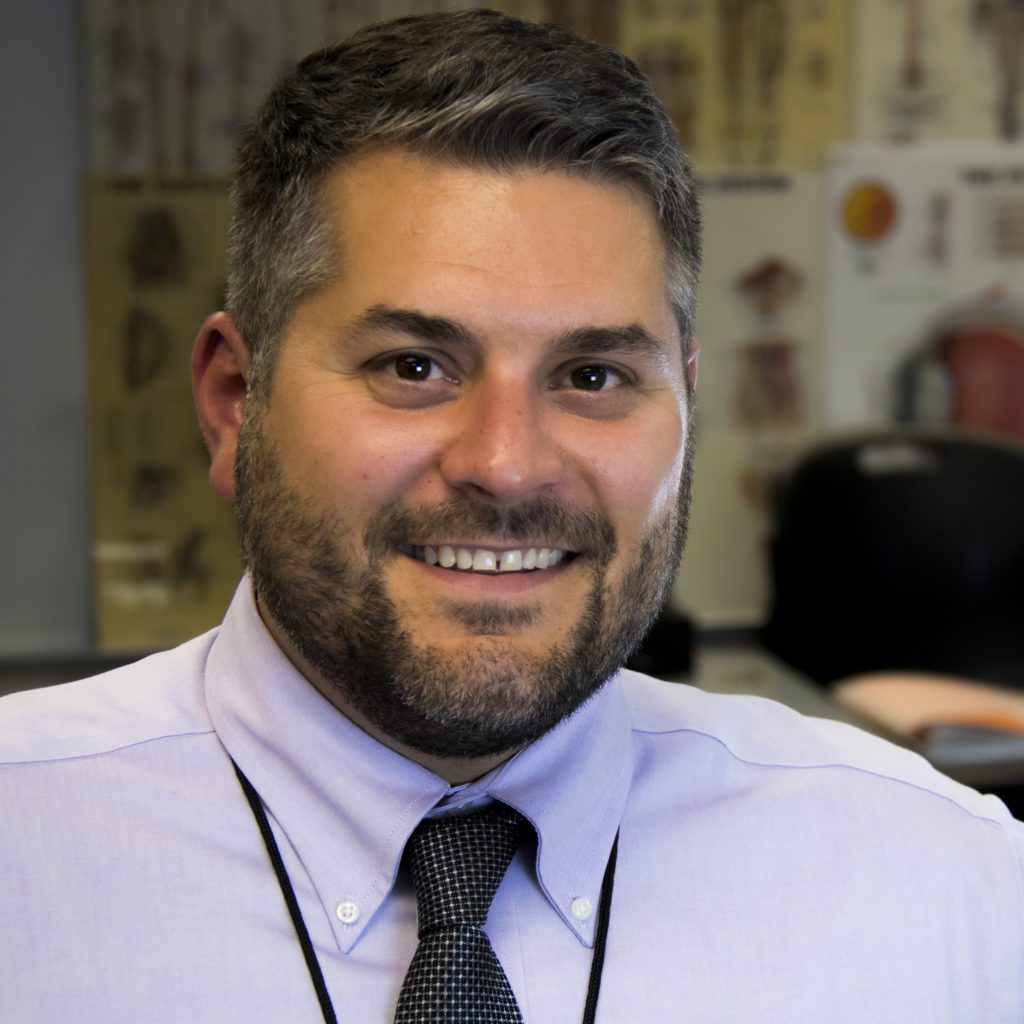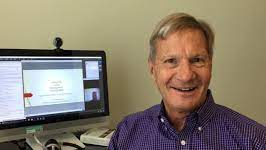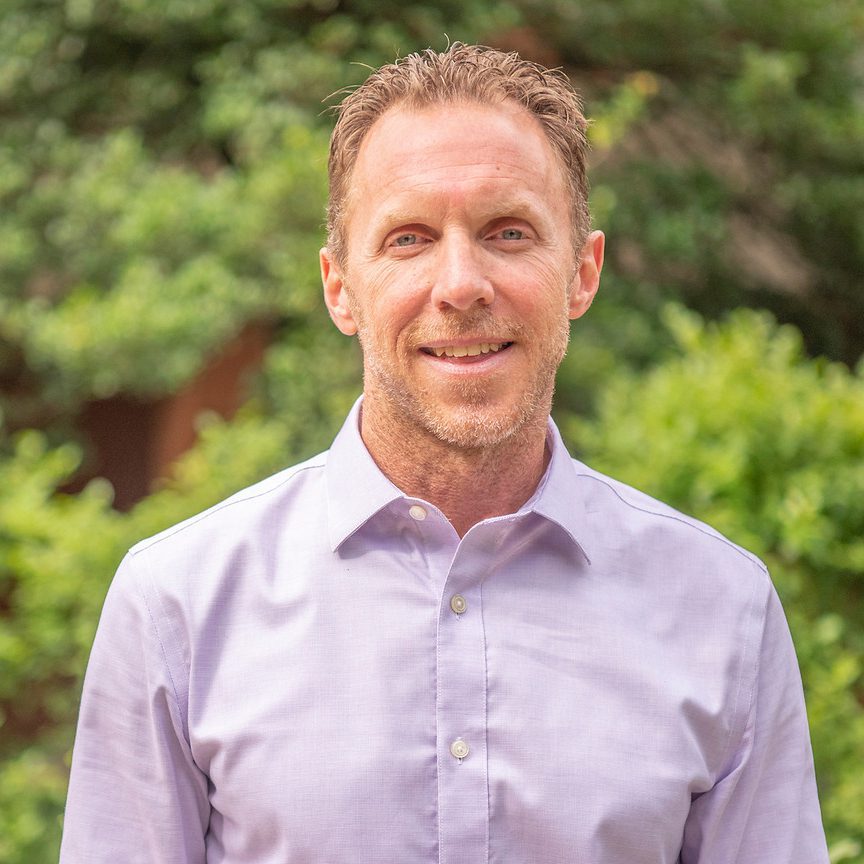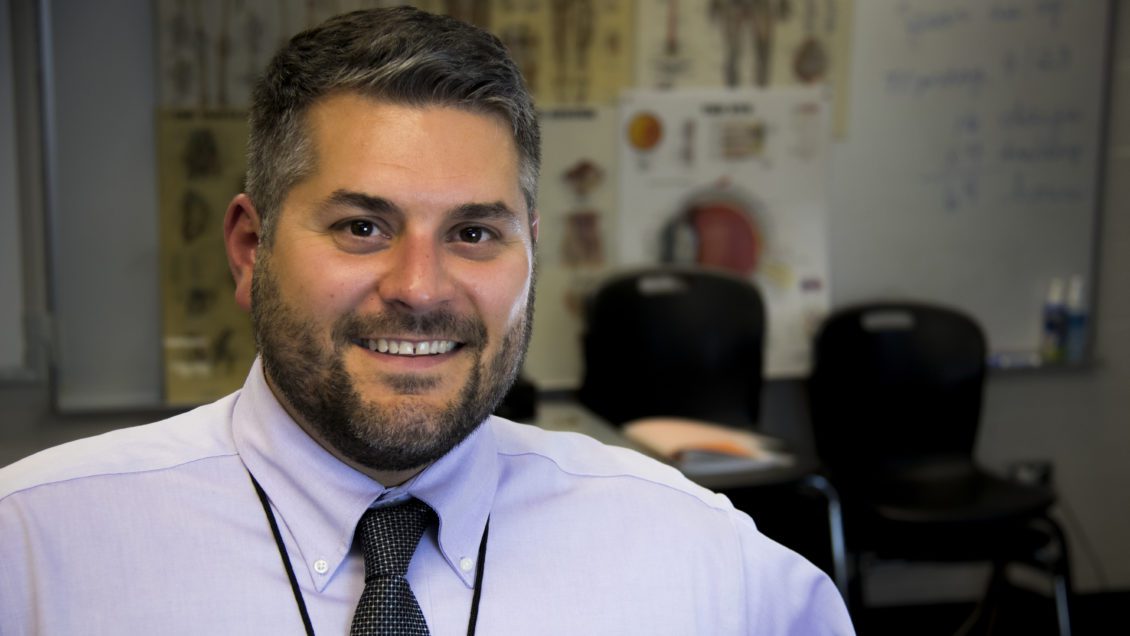Drew Perry originally planned to be a social studies teacher. A move from Clinton to Greenville early in his career, however, sent him out of the classroom and toward a new career path in dropout prevention. Perry is now a dropout prevention specialist and a 2017 graduate from the Clemson University Youth Development Leadership program.
He will always be an educator. He just spends most of his time outside of the classroom.
“My career morphed from a more traditional teaching role to doing home visits and working with families and in youth development,” Perry said. “I loved teaching, but I found that working with students in the context of education outside of the classroom and helping them connect to where they feel like they need to be was something that I really latched on to.”
With a career now more focused on outreach, Perry decided to seek out an interdisciplinary, online degree that would prepare him to address the issues facing the families and communities with which he worked while promoting positive outcomes. In 2015, he enrolled in the Youth Development Leadership program at Clemson University. While most students pursuing a degree in youth development work in out-of-school settings such as afterschool programs, camps and faith-based organizations, the program also attracts professionals working in K-12 education, juvenile justice programs and youth sport coaching.

The program’s online format allowed Perry to keep his day job while he studied. He found that every class helped him network with other professionals and connect the work he was doing in the field with current research on positive youth development, reinforcing the actions he was taking and giving him a new foundation of knowledge that could be applied to different situations.
Perry’s experience is exactly what William Quinn and other faculty members in the Department of Parks, Recreation and Tourism Management had in mind nearly 15 years ago when they built the online program. He said the online master’s degree program was designed for working professionals who find themselves looking for graduate-level training that focuses specifically on empowering youth and helping them reach their potential.
“We realized there was a growing need for a graduate level program structured for working professionals in youth-serving organizations who work with young people in a way that promotes their healthy development and prepares them for a successful adulthood,” Quinn said. “We built an online master’s degree that isn’t strictly about one discipline, such as education or psychology, but that applies principles from those and several other disciplines to help youth development practitioners learn how to foster an environment that helps children thrive.”

Quinn said the program’s focus on positive youth development challenges a widespread perception that our teen years must be marked by challenge and difficulty. Youth are often seen as problems to be managed or public safety issues in communities, which often leads to punitive solutions. He said focusing instead on how youth-adult relationships can positively influence a young person’s trajectory more often than not leads to more positive outcomes.
Research demonstrates that applying measures that can help define positive skills and growth in youth, such as the “Five C’s” (competence, confidence, caring, connection and character), can help communities provide the supports those youth need to be successful, contributing members of society.
“There is a growing field of research and literature on both practical and theoretical approaches that can be employed by youth-serving organizations to reach children and youth in a more successful way,” Quinn said. “Working professionals have been attracted to our program because instead of focusing on youth as a problem, they are able to lead productive conversations with community leaders about how they can empower young people to be the best they can be and create environments that help them thrive.”
Although the program has experienced considerable growth since its inception in 2005, it continues to stand out as a unique learning option in the field. Faculty member Ed Bowers said the program distinguishes itself because of its interdisciplinary approach, but also because learning outcomes are specifically targeted toward developing effective youth program leaders.
Classes are designed to address every facet of a youth development professional’s role, including theoretical foundations, grant writing, data analysis and staff development as well as designing, implementing and evaluating youth development programs. Students also build an e-portfolio with deliverables from each course as a strategic demonstration of their skills to potential employers.
“Other programs may give you bits and pieces of knowledge about youth work or youth psychology, but they are not offering a specific sequence of classes that will help you learn how to run an effective youth program,” Bowers said. “We’re the only graduate option that brings together all of the unique methods that youth leaders can use to be successful. The program gives leaders the tools to build programs that contribute both to the lives of the children they work with and the lives of people in their community.”
Awareness of the master’s degree option continues to grow across the country and internationally, attracting students from Germany, Syria, Saudi Arabia, Canada and Ireland. There are plans to expand the program over the coming years in order to address new and emerging issues in the youth development field and allow for increased enrollment, with Ben Parry from the University of Birmingham joining the faculty team in a postdoctoral position this fall. The program is also seeing a change in leadership, with Quinn transitioning his role as program lead to faculty colleague Barry Garst this spring.
Leslie Hossfeld, dean of the College of Behavioral, Social and Health Sciences, said that Quinn’s impact on the youth development field has been and continues to be significant.

“Dr. Quinn’s work to establish, grow and sustain the youth development leadership program has benefitted so many young people and communities directly and through the students that have matriculated through it over the years,” Hossfeld said. “I know that Dr. Garst’s background as a researcher and leader will allow him to continue the program’s positive work well into the future.”
Garst plans to continue managing the program’s growth and strengthening its ties to other disciplines in the College of Behavioral, Social and Health Sciences and across the University. “Across its considerable history, youth development – both as a program and a discipline – has experienced outstanding growth, which we’re seeing in both the number of students served as well as the quality of students recruited,” Garst said. “Thanks in large part to Dr. Quinn’s efforts, we’re a recognized leader in the delivery of academic degree and certificate programs in youth development, and I’m excited to continue to advance that work in my new role.”
The Youth Development Leadership Program and the Department of Parks, Recreation and Tourism Management are part of the University’s College of Behavioral, Social and Health Sciences (CBSHS). Established in July 2016, CBSHS is a 21st-century, land-grant college that combines work in seven disciplines – communication; nursing; parks, recreation and tourism management; political science; psychology; public health sciences; sociology, anthropology and criminal justice – to further its mission of “building people and communities” in South Carolina and beyond.
Get in touch and we will connect you with the author or another expert.
Or email us at news@clemson.edu

